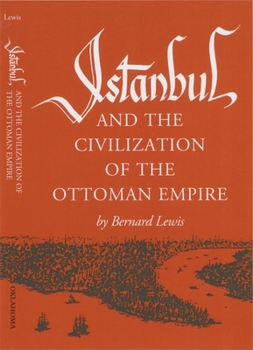Istanbul and the Civilization of the Ottoman Empire
(Part of the Centers of Civilization Series and Centers of Civilization Series)
Select Format
Select Condition 
Book Overview
On Tuesday, May 29, 1453, the young Sultan Mehemmed, known to history as "the Conqueror," launched the final assault against the walls of Constantinople and added that imperial capital, as coping stone; to the Empire that his fathers had conquered. As the Sultan's Imam intoned the Muslim creed within the walls of Hagia Sophia, the Greek cathedral become a Turkish mosque, and the curtain went up on a new era. In this, the ninth volume of The Centers of Civilization Series, Bernard Lewis describes the city and its civilization in the great age of the Ottoman Sultanate, between the fifteenth and seventeenth centuries.
Under the Ottomans, the city once again became the center of a vest empire and of a flourishing civilization. The conquerors did not destroy the captured Christian city, but took care to preserve and embellish; they added four Muslim minarets to Hagia Sophia, built many fine mosques and palaces of their own, and transformed the shrunken remnant of the Byzantine city into a new and splendid imperial capital.
The great new Muslim city of Istanbul which they created became a center of cultural as well we political life. It was the gateway between East and West, the place where Asia and Europe clashed and blended. It was the seat of the Sultans and the Grand Viziers, of the government of the Ottoman Empire. No less interesting than the concepts of government and the Muslim religion practiced by the Ottoman Turks were the imperial place and household and the people of the city.
Mr. Lewis relies upon the first-hand accounts of Turkish historians and poets and European travelers, thus enabling the reader to see the city, its people, and their life through the eyes of contemporary participants and observers.
Related Subjects
Civilization & Culture Europe General Greece History Istanbul Middle East Travel Turkey World





